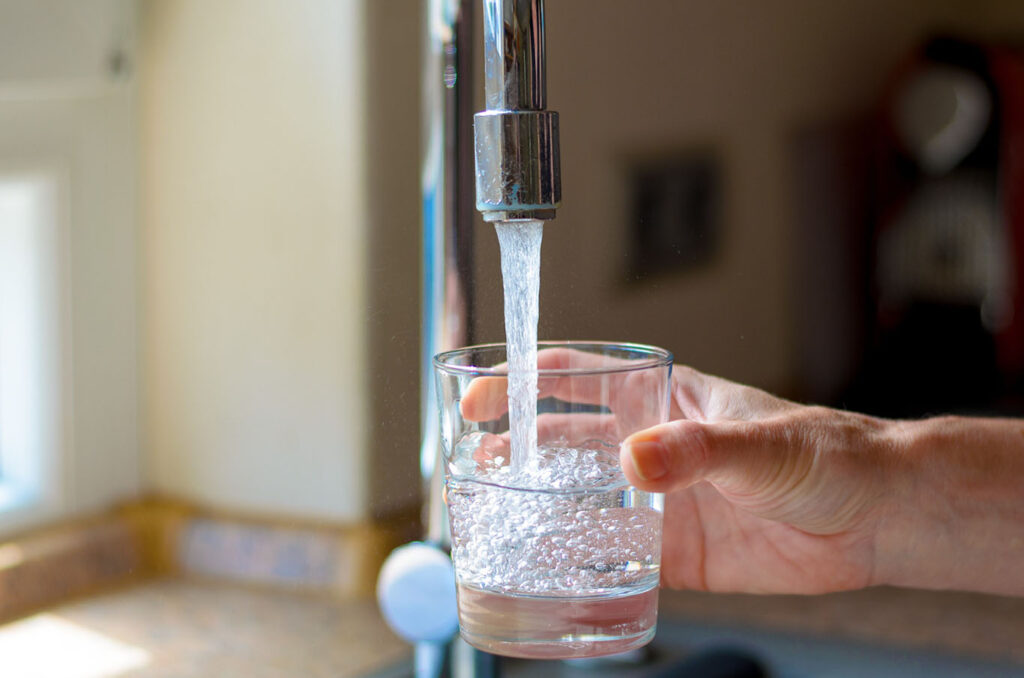
Are you struggling with your water quality? There are a wide variety of different problems that can affect a home’s plumbing system, some obvious and some not. Hard water is one of the more subtle threats and can quietly damage pipes, fixtures, and even your health if not caught early. While municipal water treatment facilities do a good job of removing many contaminants, no system is 100% effective. That’s why more homeowners are turning to dedicated water treatment systems in Denver and Centennial for added protection.
Our Denver plumbing team at Bell Plumbing, Heating, Cooling & Electrical are here to guide you through the process! We’ll explain what hard water is, the risks of untreated water, the types of water treatment systems available, and signs it’s time to install one.
Hard water is water with a high magnesium and calcium content. These minerals often escape the standard municipal water treatment process and flow directly into your home. As hard water moves through pipes, it deposits tiny mineral particles along the interior walls. Over time, this buildup grows into limescale.
Beyond plumbing, hard water can leave spots on dishes, make laundry feel stiff, and reduce the lifespan of appliances like dishwashers and water heaters.
Most cities, like Denver and Centennial, put water through an extensive treatment process before piping it into homes. This process is often effective, but it’s not foolproof. Small amounts of harmful elements—such as lead, mercury, or even bacteria—can slip through. The EPA notes that there is no safe level of lead exposure, meaning even trace amounts are worth addressing.
If you truly want to safeguard your home and health, a dedicated water treatment system is your best defense.
Even if your water looks “fine,” hidden issues may be at work. Watch for these warning signs:
If you notice any of these problems, it’s time to call a professional to test your water and recommend solutions.
Different systems target different problems. The most common includes:
Water filtration systems in Denver are designed to catch a wide range of contaminants, including:
These systems are typically installed on your home’s main water line, so every tap benefits. Contaminants are collected in a filter cartridge or disposal canister, which must be replaced periodically.
Hard water is one of the most common plumbing problems homeowners face. Water softeners in Denver work by replacing calcium and magnesium ions in the water—typically with sodium or potassium. This procedure prevents limescale from forming in your pipes and appliances. Benefits include:
For homeowners who want the highest protection, a whole-house water treatment system in Denver can combine both filtration and softening, addressing toxic contaminants and hard water at the same time. These systems provide peace of mind by ensuring that every drop of water entering your home is cleaner and safer.
The team at Bell Plumbing, Heating, Cooling & Electrical offers installation services for water treatment systems you need to get your water clean and safe. Our experts can come out to test your water, explain your options, and install the right system to keep your home protected.
Ready to get started? Give us a call to learn more about water treatment solutions in Denver, Centennial and the surrounding area that are tailored to your home and family. Schedule your appointment today!
We’re ready to answer your questions or schedule your appointment, call now or book online!
